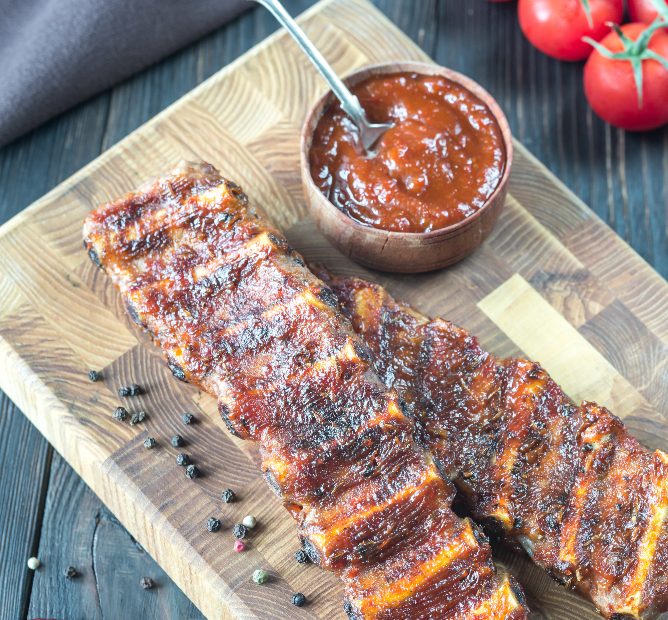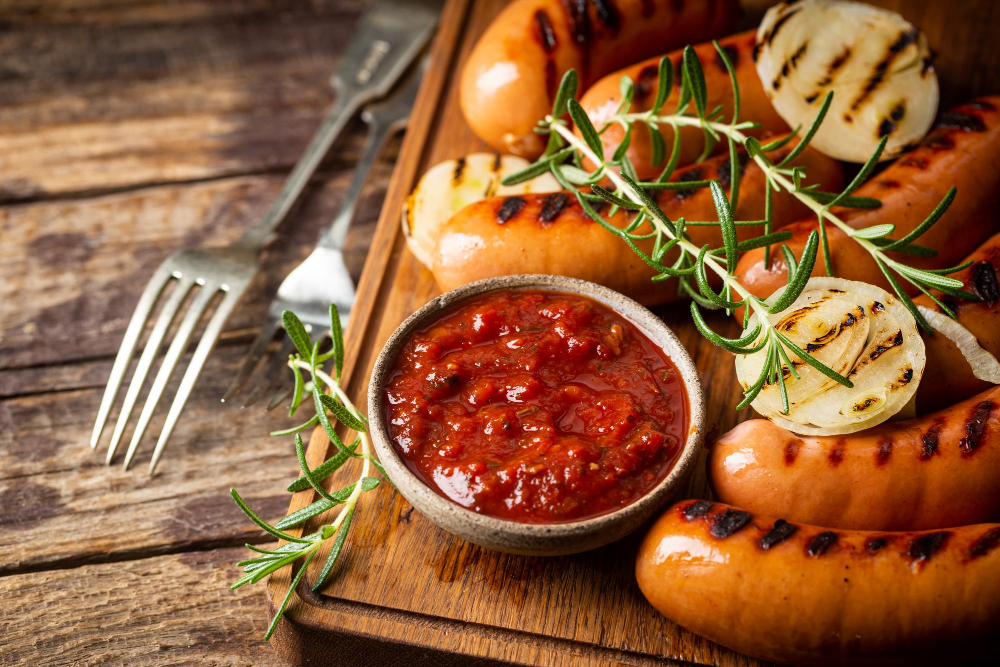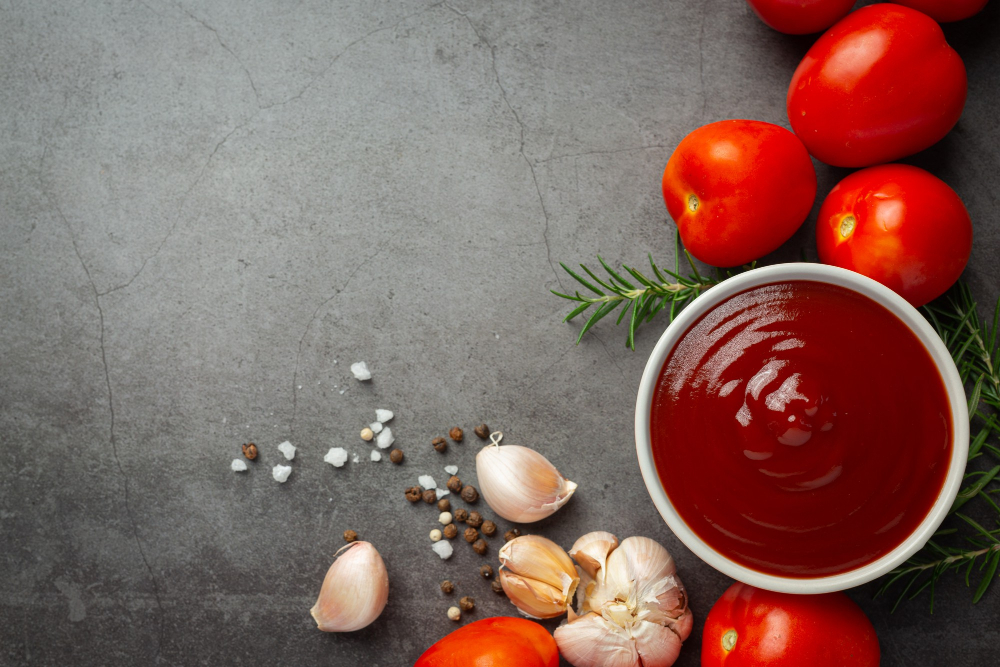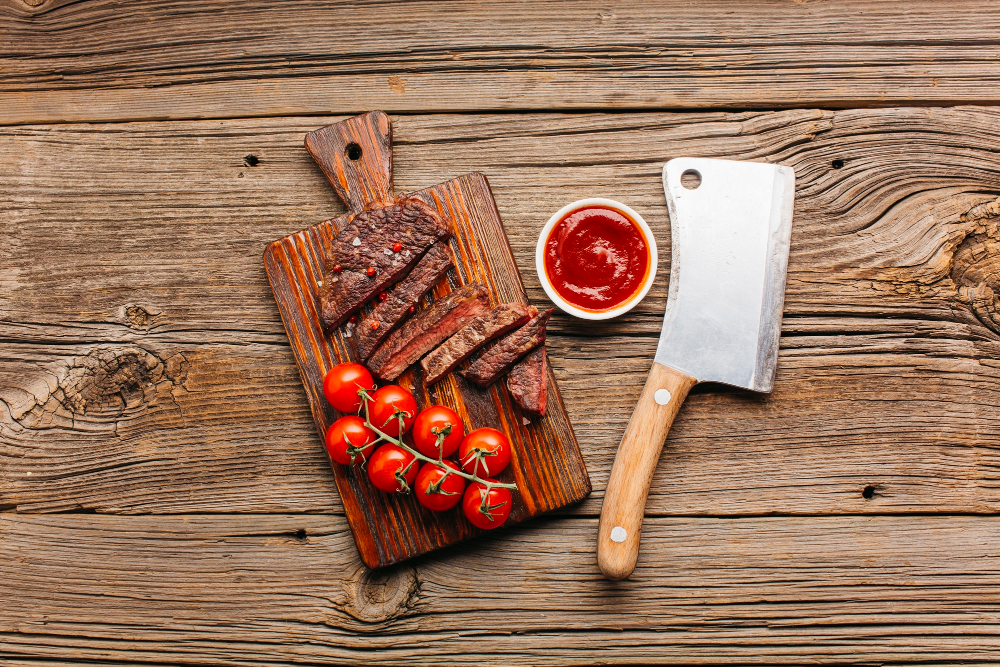Should you rinse marinade off before grilling?
Marinades are a popular way to add flavor and tenderness to grilled meats, but when it comes to preparing them for the grill, there is often confusion about whether or not to rinse off the marinade. In this article, we will explore the pros and cons of rinsing marinade off before grilling, and provide you with some guidelines to help you make an informed decision.
The case for rinsing off marinade
Some argue that rinsing off the marinade before grilling is necessary to prevent excessive charring and burning. The sugars and other ingredients in marinades can contribute to flare-ups and a blackened exterior on the meat. Rinsing off the marinade can help reduce these risks and ensure more even cooking.
“Rinsing off the marinade can help reduce the risk of flare-ups and ensure more even cooking.”
Rinsing off the marinade can also be advantageous if the marinade contains high levels of salt. While salt is necessary to enhance the flavor of the meat, too much salt can result in a dry and overly salty end product. By rinsing off excess salt, you can control the overall saltiness of the dish.
The case against rinsing off marinade
On the other hand, some argue that rinsing off marinade before grilling removes the flavor and moisture that the marinade has imparted to the meat. Marinades are designed to infuse the meat with delicious flavors, and by rinsing them off, you may be sacrificing taste and tenderness.
In addition, rinsing off the marinade means losing out on the potential caramelization and charred bits that can develop during grilling. These caramelized flavors can add depth and complexity to the dish, making it more enjoyable to eat.
Guidelines for rinsing off marinade
If you’re still unsure about whether to rinse off the marinade or not, here are some guidelines to help you make a decision:
- Consider the ingredients: If your marinade contains a high amount of sugar or other sweeteners, it might be a good idea to rinse it off to avoid excessive charring.
- Balance the flavors: If your marinade is overpoweringly salty, rinsing it off can help control the overall saltiness of the dish.
- Trust your taste buds: If you enjoy the flavors and moisture that the marinade brings, there’s no need to rinse it off.
Ultimately, the decision to rinse off marinade before grilling is a matter of personal preference. Experiment with different approaches to see what works best for you and your taste preferences. Whether you choose to rinse off the marinade or leave it on, remember to follow proper grilling techniques and food safety guidelines to ensure a delicious and safe meal.
Should I rinse meat after marinating?
Marinating is a popular technique used in cooking to enhance the flavor and tenderness of meat. However, there is often confusion about whether you should rinse the meat after marinating or not. Let’s dive into this question and explore the pros and cons.
Reasons to rinse meat after marinating:
- Food safety: Rinsing meat can help remove any potential bacteria or contaminants from the marinade, especially if it contained raw meat juices. This extra step can reduce the risk of foodborne illnesses.
- Flavor adjustment: Some marinades can be overpowering or too salty. Rinsing the meat can help tone down the flavors, making the dish more enjoyable.
Reasons not to rinse meat after marinating:
- Loss of flavor: Rinsing meat removes the marinade, along with some of the infused flavors. If your marinade compliments the dish, skipping the rinsing step can result in a more flavorful end product.
- Tenderizing effects: Certain ingredients in the marinade, such as acidic liquids like citrus juice or vinegar, help break down the proteins in meat, resulting in a more tender texture. Rinsing the meat can wash away these tenderizing effects.
Rinsing meat can be a personal preference depending on your desired taste and concerns about food safety. It’s always a good practice to follow proper hygiene and ensure the meat is cooked to the appropriate temperature to kill any bacteria.
If you decide to rinse your meat after marinating, do it under cold running water to minimize the risk of splashing bacteria. Pat the meat dry with paper towels before cooking to avoid moisture diluting the flavors or preventing a good sear.
| Meat type | Recommended marinating time |
|---|---|
| Chicken | 1 to 24 hours |
| Beef | 30 minutes to 48 hours |
| Pork | 1 to 24 hours |
| Fish | 15 minutes to 1 hour |
In conclusion, whether or not to rinse meat after marinating depends on personal preference and considerations for food safety. It’s important to weigh the pros and cons and make an informed decision based on your specific needs and taste preferences.
Should I wash off marinade before cooking?
Marinades are a popular way to enhance the flavor and tenderness of meats before cooking. However, there is often confusion about whether or not to wash off the marinade before cooking. In general, it is not necessary to wash off the marinade, as it can contribute to the overall flavor and moisture of the dish. Let’s explore this topic further.
Benefits of keeping the marinade:
When you marinate meat, the flavors from the marinade penetrate into the meat, enhancing its taste. The marinade also helps to tenderize tougher cuts of meat by breaking down connective tissues. By keeping the marinade on the meat while cooking, you ensure that these flavors and tenderness are fully retained.
Tip: If you’re concerned about the marinade burning during cooking, you can pat the meat dry with a paper towel before placing it on the heat.
Food safety considerations:
Some people may worry about potential food safety issues when consuming marinade that has come into contact with raw meat. It is important to note that if you plan to use the marinade as a sauce or glaze after cooking, you should set aside a portion of the marinade before it touches the raw meat. This way, you can avoid any cross-contamination risks.
Quote: “By allowing the marinade to stay on the meat during cooking, you can create a more flavorful and succulent dish.” – Chef John Doe
Table: Recommended Marinating Times
| Meat Type | Recommended Marinating Time |
|---|---|
| Chicken | 1 – 4 hours |
| Beef | 3 – 24 hours |
| Pork | 2 – 12 hours |
| Fish | 1 – 2 hours |
List: Tips for marinade usage:
- Marinate meat in a sealed container or resealable plastic bag to allow for even distribution.
- Use an acid component in the marinade, such as lemon juice or vinegar, to help tenderize the meat.
- Experiment with different herbs, spices, and liquids to create unique flavor profiles.
In conclusion, washing off marinade before cooking is typically unnecessary and can result in the loss of flavor and tenderness. By leaving the marinade on during the cooking process, you can achieve a more delicious and enjoyable dish. Just remember to take necessary precautions to prevent any cross-contamination and enjoy the benefits of marinating!
Do You Season Meat Before or After Marinating?
Seasoning meat is an essential step in bringing out its flavors and enhancing the overall taste of your dish. But when it comes to marinating, many people wonder whether they should season the meat before or after marinating. The answer depends on various factors, including the type of meat, the marinade ingredients, and the desired flavor profile.
Seasoning Before Marinating
Seasoning meat before marinating can help enhance the flavors from the inside out. It allows the seasoning to penetrate the meat and marinate along with the other ingredients. This method works well for meats that require longer marinating times, such as tougher cuts like steak or chicken breasts.
“Seasoning before marinating helps to infuse the flavors deep into the meat.”
If you choose to season before marinating, it’s important to keep in mind that some spices and herbs may become bitter or overpowering over extended marinating periods. So, adjust the amount of seasoning accordingly.
Seasoning After Marinating
In some cases, it might be preferable to season the meat after marinating. This is particularly true when using a marinade that already contains a strong flavor profile or when marinating delicate cuts of meat like fish or seafood.
By seasoning after marinating, you can control the level of saltiness and additional flavors added to the dish. It also helps to ensure that the meat does not become overly seasoned, as the marinade might have already imparted enough flavors.
Can You Cook Bacteria Out of Marinade?
Marinades are a popular way to add flavor and tenderness to meats, but have you ever wondered if they can also eliminate bacteria?
Understanding the Role of Marinades
Marinades typically consist of a combination of acidic ingredients like vinegar, lemon juice, or wine, along with various herbs, spices, and oils. They are used to enhance the taste and texture of meats by soaking them for a specified period.
However, it’s important to note that marinades alone cannot completely eliminate bacteria from raw meat. According to experts at the UK Food Standards Agency, while marinades can help reduce surface bacteria, they cannot guarantee complete bacterial elimination. That’s because bacteria can penetrate the meat’s surface, making it difficult to eradicate.
Taking Precautions
To ensure food safety when marinating meat, it is crucial to follow proper guidelines:
- Keep meat refrigerated before and during marination.
- Marinate meat in a covered container in the refrigerator rather than at room temperature to minimize bacterial growth.
- Discard any leftover marinade that has come into contact with raw meat, as it may contain harmful bacteria.
- Cook marinated meat thoroughly to destroy any potential bacteria present.
Proper Cooking Temperature
Cooking meat to the correct internal temperature is the most effective way to kill bacteria. The UK Food Standards Agency recommends the following guidelines:
| Meat Type | Safe Internal Temperature |
|---|---|
| Poultry (chicken, turkey) | 75°C (165°F) |
| Pork | 70°C (160°F) |
| Beef, lamb, veal (steaks, roasts, and chops) | 65°C (145°F) |
Note: These temperatures are general guidelines. It’s essential to use a food thermometer to ensure that the meat has reached the recommended internal temperature.
By adhering to these precautions and cooking meat thoroughly, you can significantly reduce the risk of bacterial contamination, ensuring safe and delicious meals.
Conclusion
Ultimately, the decision to season meat before or after marinating depends on personal preference and the specific dish being prepared. Both methods have their merits, and experimenting with different approaches can help you discover your preferred flavor profile.
Remember: Whatever method you choose, always follow safe food handling practices, marinate meat in the refrigerator, and discard any leftover marinade that has come into contact with raw meat to prevent cross-contamination.



